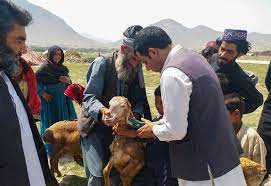5. Community-Based Education (CBE) and Accelerated Learning Centers (ALC) – Logar
Donor: UNICEF
Geographical Coverage: Logar Province (Puli Alam (Pul-i-Alam, Baraki Barak, Kharwar)
Duration: 14 March 2023 – 30 December 2025
Status: Completed.
This project provides CBE and ALC services to 14,200 crisis-affected children (8,900 girls and 5,300 boys).
The project actively involves 28,400 parents and caretakers and 980 SMS members to promote inclusive education and strengthen community engagement, with a particular focus on girls’ access to learning.
CARO ensures that education services are functional, inclusive, and aligned with humanitarian education standards, aiming to expand equitable access and improve learning quality.
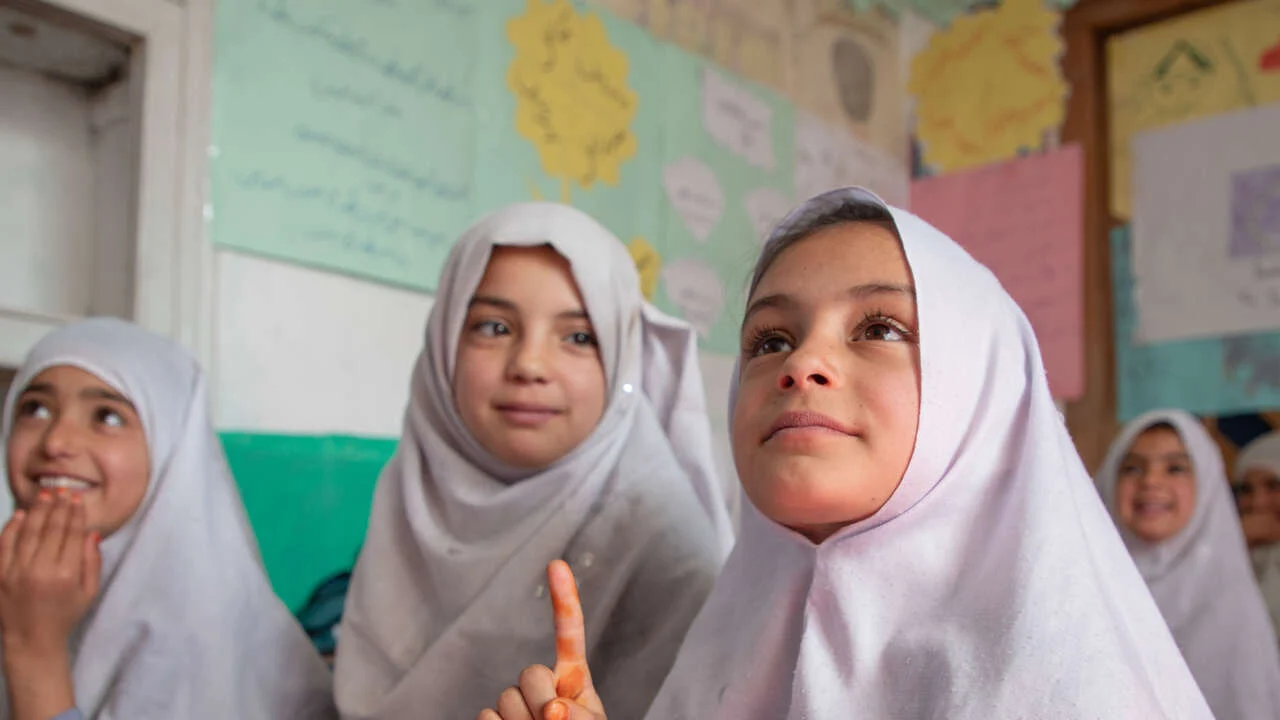
4. Consolidation and Expansion of Community-Based Education (Transition) – Balkh
Donor: ECW / UNICEF
Geographical Coverage: Balkh Province – 6 districts ( Mazar-e-Sharif, Balkh, Dehdadi, Dawlatabad, Charbolak (Chahar Bolak), Sholgara).
Duration: 01 March 2023 – 30 December 2025
Status: Completed.
This project consolidates and expands Community-Based Education (CBE) services for 4,900 crisis-affected children (2,950 boys and 1,950 girls).
Additionally, 9,800 parents and caretakers and 650 SMS members are engaged to strengthen community support and advocacy for children’s right to education.
The intervention contributes to continuity of learning in crisis-affected and underserved communities.
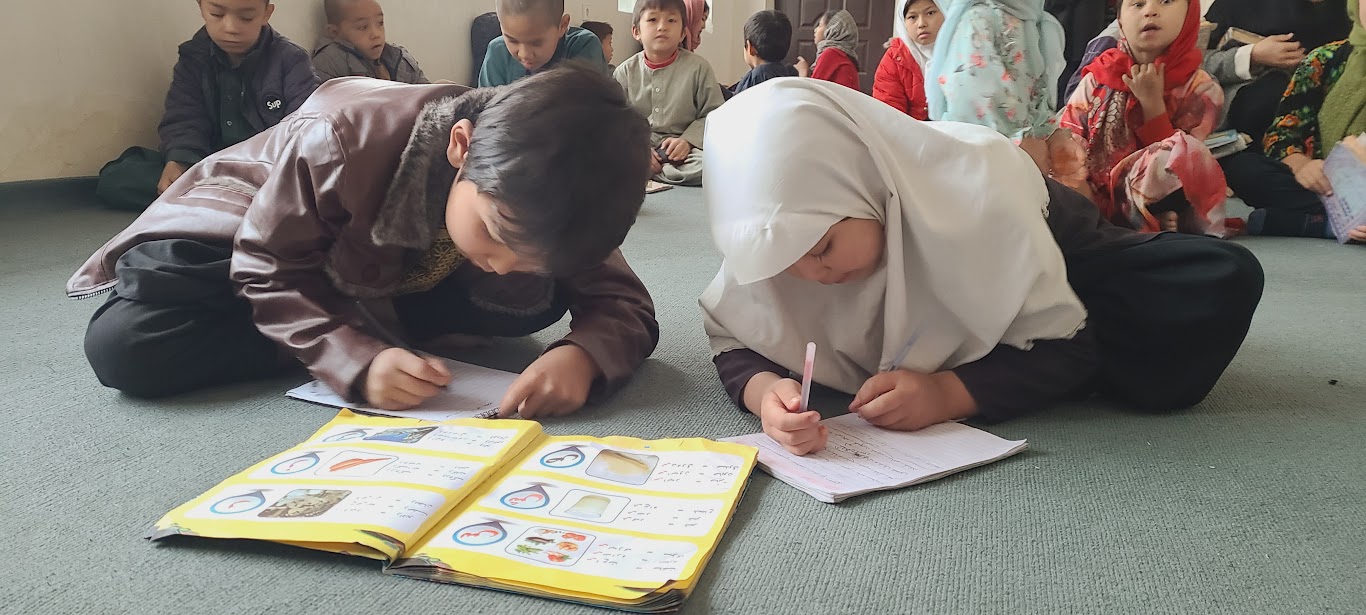
3. Consolidation and Expansion of Community-Based Education (Transition) – Wardak
Geographical Coverage: Wardak Province – 3 districts (Sayed Abad, Chak, Jaghato)
Duration: 01Jue 2023 – 30 December 2025
Status: Completed.
This project supports the consolidation and expansion of CBE and ALC services for 6,600 emergency-affected children (5,200 girls and 1,400 boys).
The project also engages 13,200 parents and caretakers and 1,050 SMS members to promote positive attitudes toward education and reduce socio-cultural barriers affecting girls’ education.
CARO ensures that learning environments meet minimum standards of quality, safety, and effectiveness, contributing to sustained access to education and improved learning outcomes.
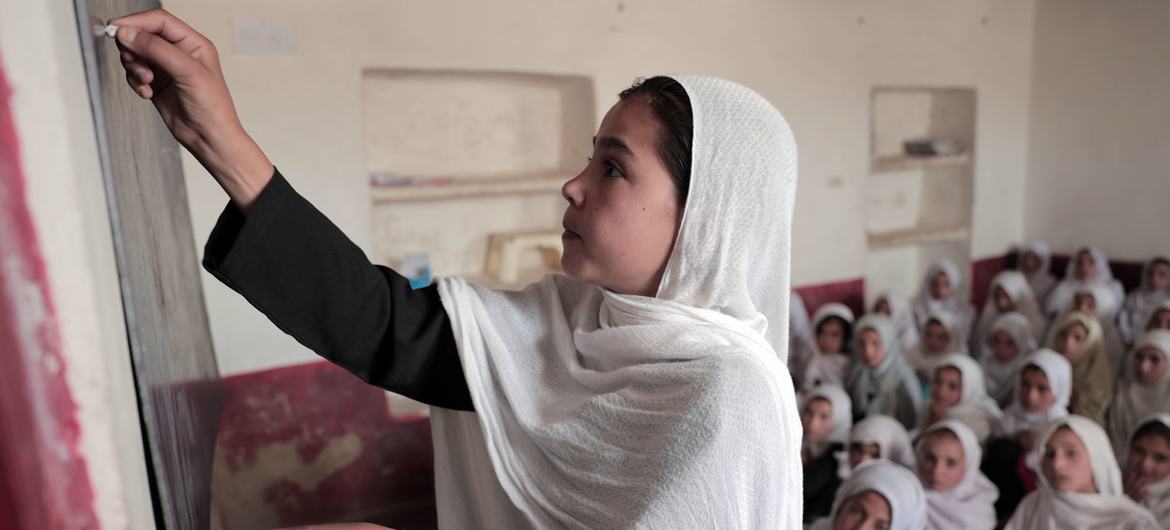
2. Community-Based Education (CBE) and Accelerated Learning Centers (ALC) – Herat
Geographical Coverage: Herat Province – 3 districts (Pusht Ko, SHindand, Adraskan), 90 villages
Duration: 01 May 2024 – 31 December 2025
Status: Completed
The project provides CBE and ALC services for 2,400 crisis-affected children (1,440 girls and 960 boys) across remote districts of Herat province.
In addition, 2,900 parents and caretakers and 360 SMS members are engaged to promote children’s rights and address barriers to girls’ participation in education.
The intervention focuses on ensuring quality, inclusive, and community-supported learning environments, contributing to sustained access to education for marginalized children.
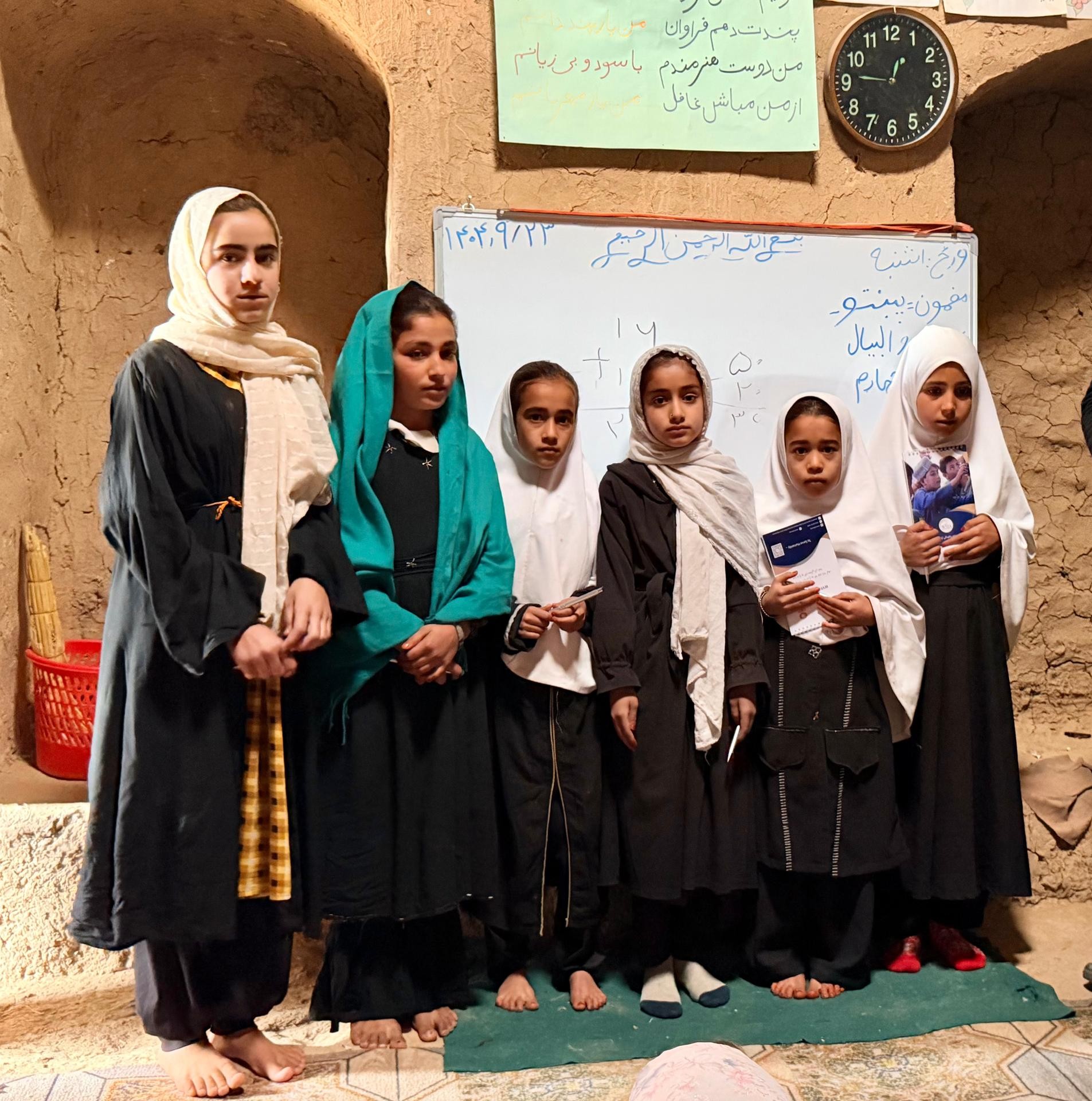
1. Community-Based Education (CBE) and Accelerated Learning Centers (ALC) – Ghazni
Geographical Coverage: Ghazni Province – 3 districts (Giro, Malistan, Qarabagh), 120 villages
Duration: 01 May 2024 – 31 December 2025
Status: Completed
This project delivers Community-Based Education (CBE) and Accelerated Learning Center (ALC) services to 2,900 crisis-affected children (1,740 girls and 1,160 boys) in hard-to-reach areas of Ghazni province.
The project also engages 3,400 parents and caretakers and 420 members of School Management Shuras (SMS) to strengthen community ownership of education and advocate for children’s rights, particularly girls’ education.
CARO ensures that learning spaces are safe, inclusive, and functional, contributing to increased access to education and improved learning outcomes for vulnerable children.
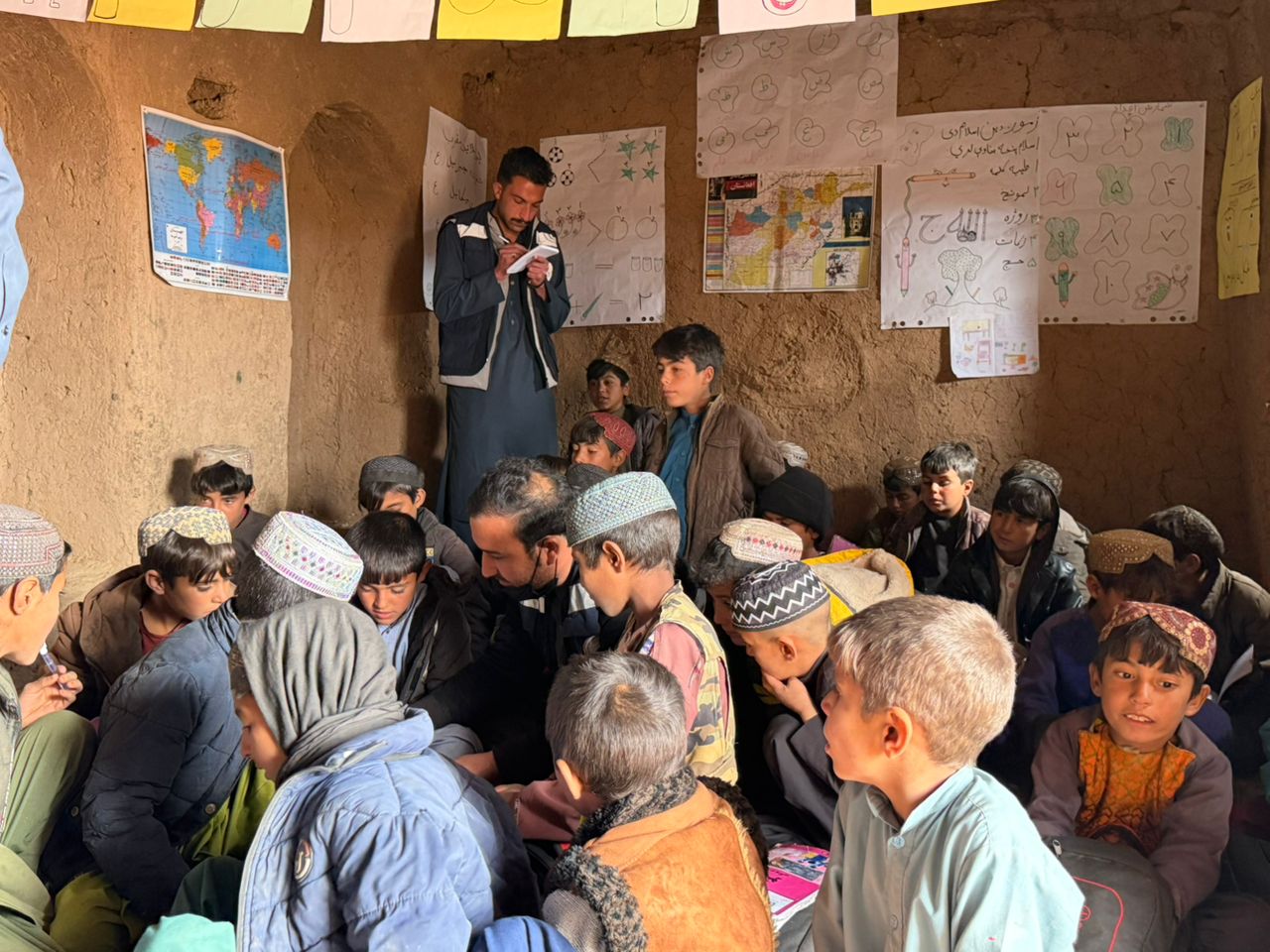
Survey on Entrepreneurial Access to Islamic Banking and Debt Mechanisms (2021–2022)
In 2021–2022, CARO conducted a multi-provincial survey to assess the financial behaviors, challenges, and perceptions of small-scale entrepreneurs regarding Islamic banking services and Sharia-compliant debt mechanisms. This field research spanned eleven key provinces with high concentrations of informal and micro-entrepreneurs: Balkh, Herat, Kandahar, Uruzgan, Zabul, Ghazni, Wardak, Khost, Paktika, Logar, and Kabul.
The survey engaged over 1,200 male and female entrepreneurs across diverse sectors, including agriculture, trade, services, and small manufacturing. Using structured questionnaires and focus group discussions, CARO collected data on entrepreneurs’ awareness of Islamic finance principles (e.g., Murabaha, Ijara, Musharaka), their access to financial institutions, loan conditions, repayment patterns, and perceived barriers.
Key findings revealed that while demand for Islamic financial products was strong—particularly among religiously observant communities—actual access remained limited due to institutional gaps, lack of tailored products, and minimal financial literacy. Most participants expressed concerns over interest-based loans and voiced a strong preference for debt mechanisms aligned with Islamic jurisprudence.
The assessment also highlighted the need for expanded outreach, simplified loan processes, and capacity-building for both entrepreneurs and local Islamic finance institutions. CARO’s research was shared with relevant stakeholders, including financial institutions, policymakers, and donors, to inform future program design in Islamic microfinance and entrepreneurship support.
The project contributed significantly to the evidence base on financial inclusion in Afghanistan, offering actionable insights into how Islamic banking could be leveraged to serve underbanked and economically vulnerable populations
Project Overview:
In 2021–2022, CARO conducted a comprehensive multi-provincial survey to evaluate how small-scale entrepreneurs engage with Islamic banking systems and access Sharia-compliant debt mechanisms, with support from GIZ’s Afghanistan Program.
Geographic Scope:
Balkh, Herat, Kandahar, Uruzgan, Zabul, Ghazni, Wardak, Khost, Paktika, Logar, and Kabul.
Key Activities:
• Surveyed 1,200+ entrepreneurs from micro and informal business sectors (trade, agriculture, services).
• Conducted structured interviews, focus group discussions, and key informant sessions to explore financial behaviors and perceptions.
• Mapped knowledge and usage of Islamic finance tools such as Murabaha, Mudaraba, Ijara, and Qard Hasan.
• Evaluated barriers to access, including financial illiteracy, lack of institutional outreach, and product unavailability.
Key Findings:
• Over 80% of respondents showed a clear preference for Islamic financial products over conventional loans.
• More than two-thirds had no formal banking relationship.
• A strong desire emerged for Sharia-compliant microfinance services tailored to small business needs.
• Entrepreneurs in rural areas highlighted religious concerns and cultural compatibility as major factors influencing financial decisions.
Project Outcomes:
• Provided an evidence-based analysis for use by financial institutions, donors, and government stakeholders.
• Informed GIZ and partner organizations on the demand gap for Islamic financial products.
• Contributed to future programming for inclusive, faith-aligned financial services in Afghanistan’s entrepreneurial ecosystem
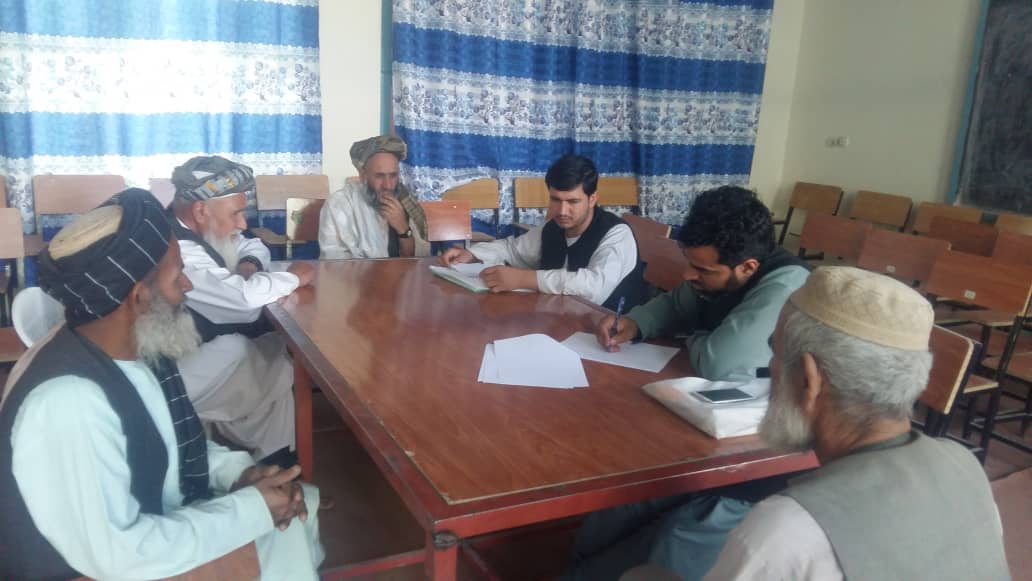
Experience in Livelihood and Handicraft Support for Handworkers (2018–2019)
Between 2018 and 2019, CARO implemented a targeted livelihood and vocational support project for handworkers in Badakhshan and Mazar-e-Sharif, with funding from the U.S. Embassy in Kabul. The project aimed to enhance economic resilience and income-generating opportunities for vulnerable artisans—particularly women and youth engaged in traditional handicrafts and small-scale production.
Over 400 beneficiaries received specialized vocational training in skills such as embroidery, tailoring, carpet weaving, jewelry making, and local textile production. The trainings were designed to improve both technical proficiency and product quality, enabling participants to meet market standards and diversify their income sources.
In addition to technical instruction, CARO facilitated entrepreneurship development workshops covering topics such as pricing, customer service, record-keeping, marketing, and access to microfinance. Toolkits and starter materials were distributed to help graduates launch or scale their home-based or cooperative businesses.
The project also supported market linkages by organizing local exhibitions, connecting artisans to retailers, and encouraging participation in trade fairs. Through these efforts, many participants were able to secure stable income streams and contribute to household livelihoods.
By combining traditional knowledge with practical business skills, the initiative not only preserved local heritage crafts but also empowered marginalized groups—especially women—to participate in the local economy and build sustainable, dignified livelihoods
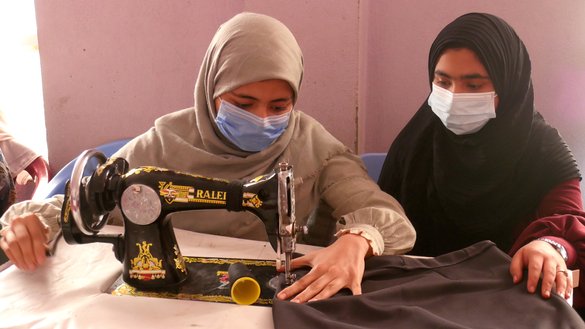
Experience in Education Project Implementation (2019–2020)
Between 2019 and 2020, CARO successfully implemented a multi-province education project in Khost, Paktika, Logar, Ghazni, and Herat with funding support from the U.S. Embassy in Kabul. The initiative aimed to expand access to quality primary education for children in rural and conflict-affected areas, with a special focus on improving literacy, numeracy, and inclusive learning opportunities.
The project established and supported over 200 learning spaces across targeted districts, enrolling more than 6,500 students—of whom over 60% were girls. Local teachers were recruited, trained, and deployed through a rigorous selection and capacity-building process that emphasized child-centered pedagogy, classroom management, and psychosocial support for students affected by conflict.
Educational materials—including textbooks, stationary, and teaching aids—were distributed to all enrolled learners. CARO also worked closely with local education authorities and community shuras to ensure community ownership, alignment with Ministry of Education standards, and smooth integration into the formal education system wherever possible.
Regular monitoring and evaluation activities were conducted, including classroom observations, teacher performance reviews, and student learning assessments. These efforts helped maintain quality, track progress, and inform timely adjustments. The project led to a measurable improvement in basic learning outcomes, increased enrollment and retention rates, and significantly strengthened community awareness on the value of education—especially for girls.
While challenges such as security constraints and infrastructure gaps persisted, CARO’s adaptive, community-driven approach ensured sustained impact and contributed meaningfully to national education goals.
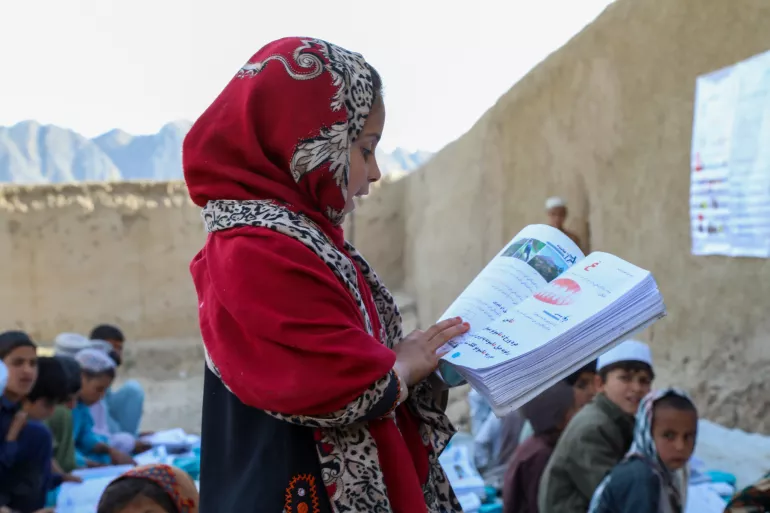
Experience in Livestock Support (2022–2023)
Between 2022 and 2023, CARO implemented small-scale livestock support initiatives in Mazar-e-Sharif, Parwan, and Kapisa provinces, targeting vulnerable rural households affected by economic instability and climate stressors.
CARO provided selected families — particularly women-headed households and smallholder farmers — with poultry, goats, and sheep to support household nutrition and income generation. In coordination with local veterinary officers, basic animal health services, vaccinations, and deworming campaigns were conducted to protect livestock assets.
In addition, basic training sessions in animal husbandry were delivered, focusing on feeding practices, shelter management, and disease prevention. A small pilot initiative in Mazar-e-Sharif supported a group of women in starting home-based dairy activities, such as yogurt and ghee production, linked to local markets.
These interventions were community-driven, tailored to local needs, and aligned with national livestock and food security priorities. While modest in scale, they contributed to enhanced resilience, household food security, and women’s economic participation in the targeted areas.
